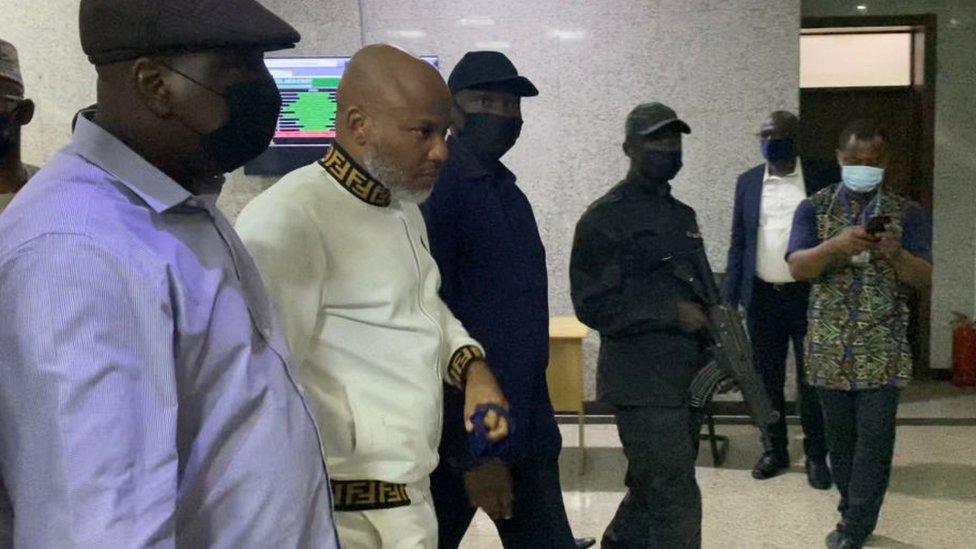Nnamdi Kanu: Nigeria separatist pleads not guilty to terrorism
- Published

This was the first time Nnamdi Kanu (in white) had been seen in public since June
The Nigerian separatist Nnamdi Kanu has pleaded not guilty to charges levelled against him by the authorities, including terrorism and treason.
His appearance in court was the first time he had been seen in public since he was captured abroad and repatriated in June.
Mr Kanu's initial arrest in 2015 triggered protests by his supporters.
The authorities deem his Indigenous People of Biafra (Ipob) group a terror organisation.
Journalists were barred from entering the court in the capital, Abuja, with critics calling it a "secret trial".
At the trial, the Ipob leader appeared healthy and happy in pictures taken with his lawyer that are circulating online, including one photo where he can be seen smiling.
There was a strong security presence at the court proceedings, including the army and police who were deployed outside the premises.
Along with terrorism and treason, Mr Kanu is facing charges of running an illegal company and publishing defamatory material, which appears to relate to comments he made about President Muhammadu Buhari.
He is also alleged to have encouraged Ipob members to attack Nigerian security operatives, BBC Pidgin reports.
His lawyer Ifeanyi Ejiofor said the charges against the separatist leader had no basis in Nigerian law, the BBC's Chris Ewokor reports.
The case has now been adjourned to 10 November.
Mr Kanu was originally arrested in 2015 but he fled Nigeria in 2017 while out on bail.
Ipob wants a group of states in the south-east of the country, which mostly comprises the Igbo ethnic group, to break away from Nigeria and form an independent nation called Biafra.
In 1967 Igbo leaders declared independence for the state of Biafra, but after a civil war, which led to the deaths of up to a million people, the secessionist rebellion was defeated.
But the idea of Biafra has never gone away and despite arrests of his members, Mr Kanu's movement has seen a recent swell in its numbers.